Performance Review | Far From Home, A Return to Hometown – America's Ulysses Quartet Debuts at Beijing Modern Music Festival
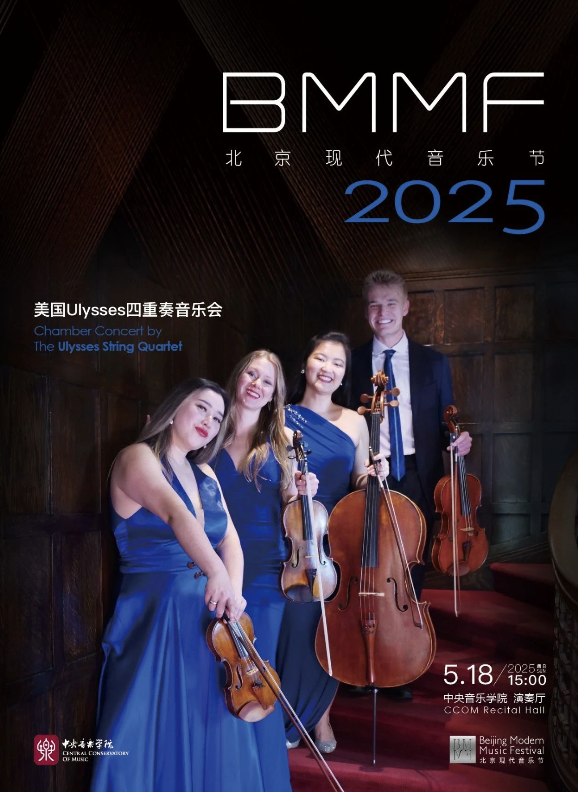
On the afternoon of May 18th, the American Ulysses Quartet made its debut at the Beijing Modern Music Festival, also marking their first performance in China's capital.
This string quartet, composed of musicians from Canada and the United States, is world-renowned for its profound understanding and outstanding interpretations of classical, modern, and contemporary works. This concert featured seven pieces by seven contemporary composers, including several world and China premieres. The classical genre of the "string quartet" not only offered a stark contrast to the preceding Western contemporary music pieces at the festival but also sparked unique colors through its collision with new musical vocabularies. Just as their name "Ulysses," derived from Homer's epic, suggests—it seemed to imply a musical "Odyssey," where, having journeyed across oceans, we returned to our original homeland.
Each piece in the concert was enthusiastically introduced in Chinese by the quartet's cellist. To begin, American composer Caroline Shaw's Plan & Elevation (2015) depicted the beautiful scenery of Dumbarton Oaks in five movements. The work features a compact movement structure, with each movement grounded on a fixed bass, thereby maintaining a subtle structural unity. Overall, its relatively clear and well-crafted harmonies indicated the composer's look back towards tonality.
The work's use of musical material was relatively simple; however, her exploration of rich timbres was evident in the string performance techniques: the four instruments frequently employed crisp pizzicato to create a sense of space, ingeniously corresponding, it seemed, to the "plan and elevation" (flatness and dimensionality) in the title. Towards the end, the four musicians played in unison, completing a prolonged and meditative dialogue, until the first violin emerged from this tranquil tension, pushing the register to extreme heights with a final flourish, embodying both captivating lyricism and sublimity.

The next two works presented a musical dialogue of mutual learning between East and West. First, Professor Gong Xiaoting of the Central Conservatory of Music came on stage to greet the members of the Ulysses Quartet and express her delight at this collaboration.
Professor Gong said that "Dong Feng" (East Wind) is a beautiful image in Chinese culture, and this piece, Dong Feng Ru Yun (The East Wind's Charm, 2024), is dedicated to her father, also a composer. Aurally, the entire work features beautiful, coherent phrases with graceful undulations—presenting both the aesthetic of "harmonious sounds and rhymes" and depicting the light, elusive essence of the "wind."
The musical theme of the work is extremely distinct and lyrical, yet it is often overlaid upon non-functional harmony, seemingly hinting at the composer's reserved emotions. The violin and viola engage in "call-and-response" phrasing in several sections, while the cello largely supports the structure with rhythmic drive. The coda revisits the introductory material with a completely different character, concluding in a joy reminiscent of gongs and drums.
Here, the Ulysses Quartet demonstrated exceptional artistic insight. Their performance featured not only control over the light and shade of timbre but was also evident in their subtle handling of dynamic contrasts, emphasizing a restrained tension, richly imbued with the harmonious beauty characteristic of Eastern aesthetics.
American composer Seth Grosshandler's Dances for String Quartet (2024) is a work specially dedicated to the Ulysses Quartet. The composer looks back at past musical heritage, infusing a series of Baroque dances with contemporary musical vocabulary.
The entire work frequently employs archaic polyphonic techniques and bears stylistic similarities to Ravel's String Quartet in F Major, showcasing the composer's mastery in connecting the past and present. The opening Prelude has a Toccata-like rhythmic feel. The Courante appears with a cheerful and distinct character, using its signature 3+3 rhythm to create a sense of irregular alternation, while cleverly using the violin part to delineate the melodic contour. The Minuet movement of this work is written in a style almost identical to its most classical form, while the unique pizzicato technique in the final Rigodon adds a touch of humor to this classical tableau. The Ulysses Quartet handled these passages with great lightness, their playing well-paced and graceful, like dancers in motion.
The second half of the concert began with Peach Blossom Spring (Tao Hua Yuan Ji, 2017) by US-based Chinese composer Li Xinyan. The work attempts to depict the classic Chinese literary tale using a Western musical genre: a fisherman's accidental journey to an ethereal paradise, his return to the mortal world, and his subsequent inability to find it again. The Chinese characteristics of the entire piece are clearly audible in its melodies. The violin part often appears in a cadenza-like form, presenting complete musical ideas with a plaintive quality. Simultaneously, the music incorporates numerous Chinese musical techniques: the composer uses extensive glissandi and pizzicato to evoke a sense of landscape and employs the most vivid sounds to paint the beauty of "showers of falling blossoms."
A work by the quartet's first violinist, Christina Bouey, Soul (2024), felt more like a confessional letter written to her "current self," yet its text is open—a thousand people might have a thousand interpretations.
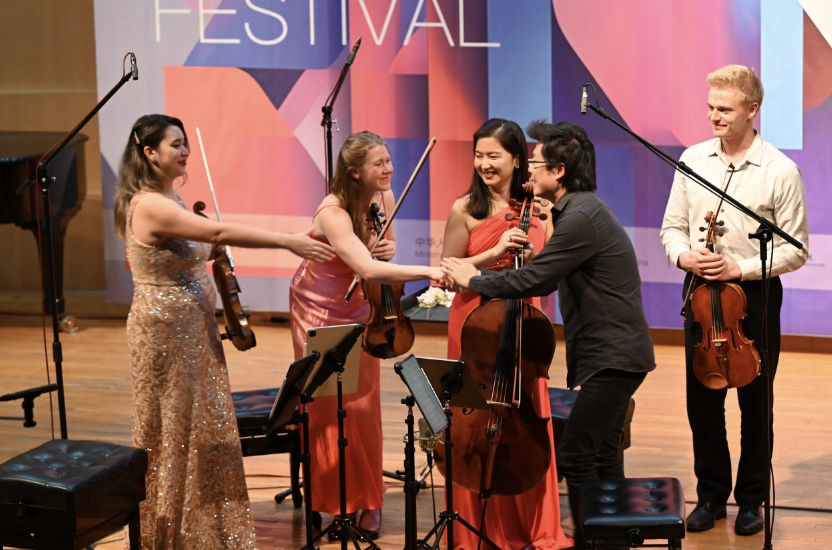
The entire piece uses signature arpeggiated textures to create a sense of undulating and lingering thoughts. The music's tonal direction is traceable, with the composer seemingly intentionally using stacked harmonies to create a hazy atmosphere. The quartet's performance fully demonstrated their understanding of "emotion": each dynamic change was not overly dramatized, yet the tremors in the details possessed a unique penetrative power. In the coda, the lead violin guided the melodic line to a high register before it slowly descended, like the cessation of a spiritual journey.
The most avant-garde work of the concert was Chen Yangping's Fugue of Distance (2025). The word "distance" in its title manifested in the music as a poetics rendered through "defamiliarization." This piece deconstructs the basic materials of a traditional fugue using the concept of "sonic sculpture," creating a structurally clear contemporary fugue through the reorganization of melodic movement direction (ascending/descending) and interval data (number of semitones). The entire work explores extensively in terms of range and performance techniques, with frequent use of glissandi creating an aurally stark roughness. The Ulysses Quartet demonstrated extraordinary control and structural sense in this type of work; the depth and lines of the fugue were made tangible here as an auditory space demanding direct experience, profoundly thought-provoking.
The final piece of the concert was American composer Joan Tower's Wild Summer (2017). The music is one part of a "Four Seasons" suite co-created by four composers and is inspired by the composer's youthful memories of parties, dances, and adolescent emotions, constructing an ever-shifting "emotional rhythm" between revelry and contemplation. The music opens encompassed by a unison passage with a march-like quality, subsequently settling into controlled, chordal statements.
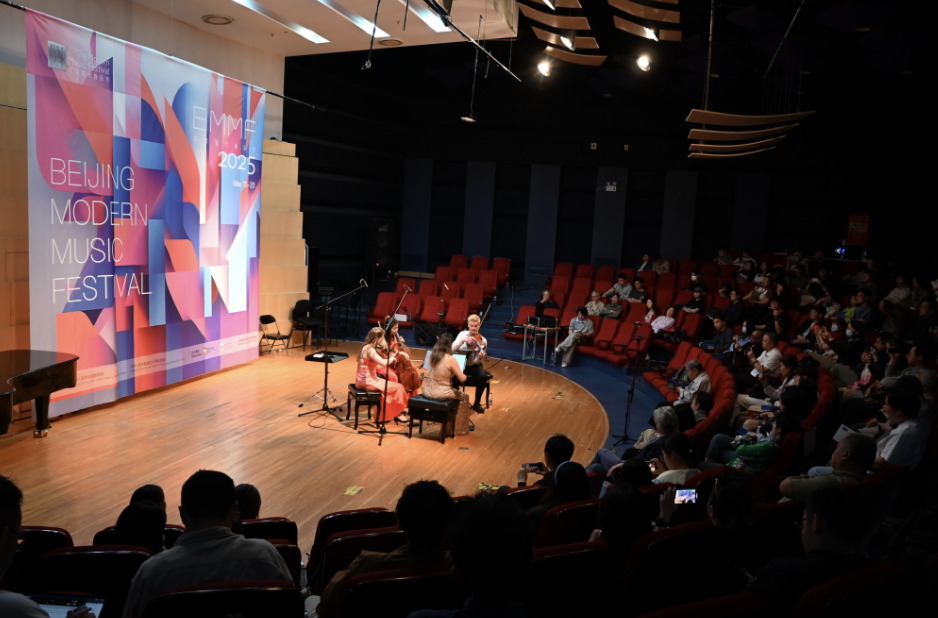
The work perhaps contains motivic quotations from French composer Saint-Saëns' Danse Macabre (1874), thereby shaping a wilder and more fervent musical character. The composer's attempt to recapture memories of high summer was given maximum release in the Ulysses Quartet's performance. Rapid clusters of notes and slow, lyrical passages formed a sharp contrast, bringing the work closer to the capricious yet colorful spectrum of human emotions—writing memories with ecstasy, looking back on life with serenity.
As the final note of the last piece sounded, the audience erupted in warm and sustained applause. Professor Gong Xiaoting presented flowers to each member of the quartet, expressing her gratitude and praise for their superb performance, while the quartet members responded to the audience's enthusiasm with humble smiles. Students from the Orchestral Department of the Central Conservatory of Music gave high praise to the Ulysses Quartet after the performance: "Their playing is delicate yet powerful. Whether it's their exquisite grasp of timbre or their precise control of overall rhythm, it all reflects an extremely high level of professionalism and artistic charisma."
As their Beijing debut as an ensemble, this performance was undoubtedly a huge success. With their consummate technique, keen artistic sensibility, and profound, insightful interpretations of the works, they successfully transcended the boundaries of history, culture, and style. Between Western classical vocabulary and Eastern contemporary meaning, the Ulysses Quartet, with its unique and balanced musical expression, presented a highly inspiring musical journey, also affirming the metaphor of their name: an "Odyssey"-like exploration and return.
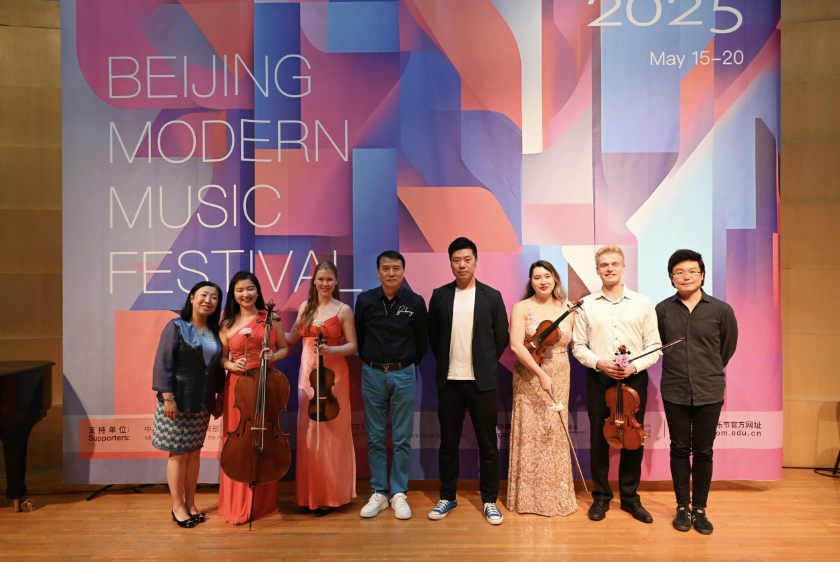
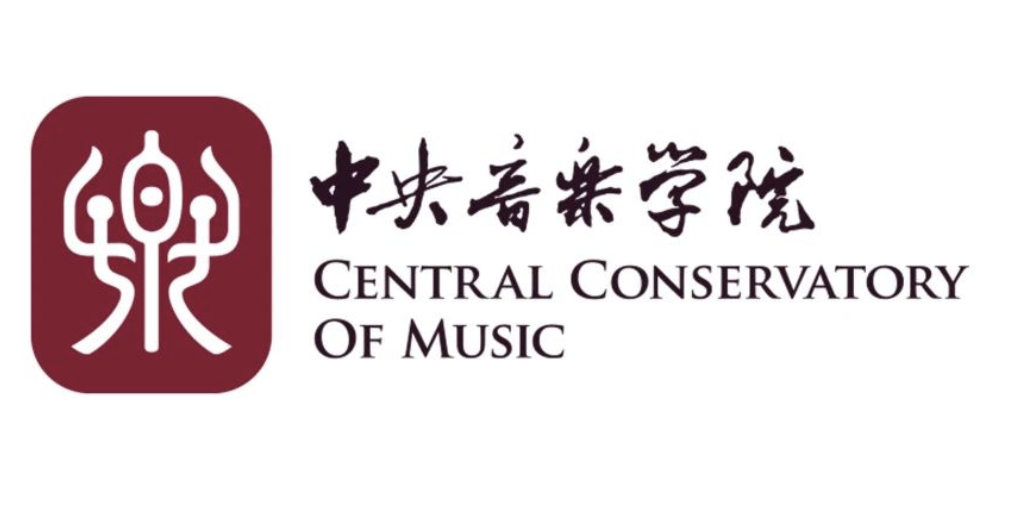

Executive Director | Guo Hai'ou
Executive Assistants | Zhang Shuhao, Yin Nan
Article Written by | Huang Shunan
Photography by | Zhang Yaxuan
